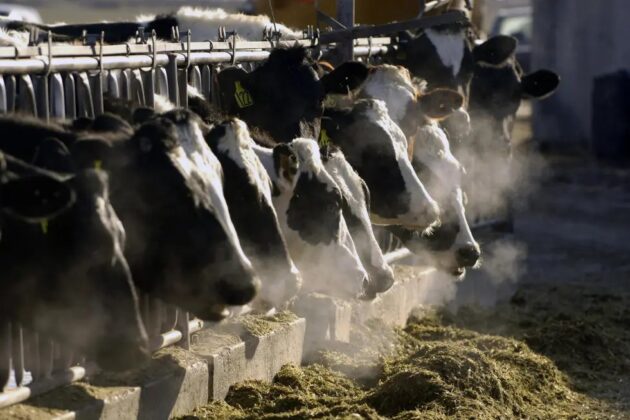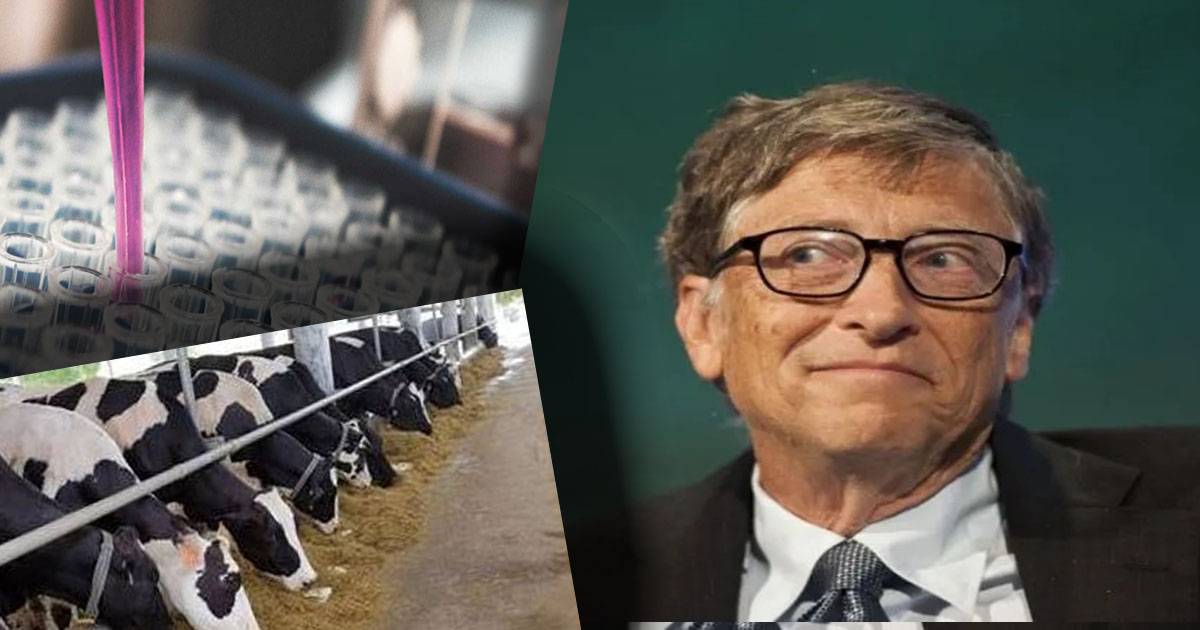Australia has unveiled a plan to administer Bill Gates’ mRNA vaccines to all livestock intended for human consumption, sparking discussions about the implications of this decision. The Australian government intends to enforce the mandatory rollout of mRNA vaccines for livestock, even if some cattle farmers express disagreement.
On May 2, 2023, Meat and Livestock Australia (MLA) revealed its funding commitment for a project aimed at testing the feasibility of rapidly producing mRNA vaccines within the country. These vaccines would serve as a preventive measure against potential outbreaks of diseases such as lumpy skin disease (LSD) or other exotic illnesses affecting livestock.

The Manager for Animal Wellbeing issued a statement outlining the objectives of the project, stating that the focus would initially be on developing an mRNA vaccine pipeline for LSD and potentially other emergency diseases. The goal is to establish the capacity for swift mass production of vaccines in response to outbreaks. Notably, there are currently no registered LSD vaccines for use in Australia, and the pathway to approval for traditional vaccines is lengthier compared to that of mRNA vaccines.
The expeditious production and adaptability of mRNA vaccines have attracted pharmaceutical companies, but concerns remain about their safety, efficacy, and suitability for both human and livestock populations. A study published in PubMed Central in 2022 highlighted the success of mRNA vaccines against Covid-19, underscoring their potential in preventing infectious diseases, particularly in veterinary medicine.

The debate surrounding mRNA vaccines’ validation over the past three years raises questions about their credibility. Critics often point out that the swift deployment of mRNA vaccines during the Covid-19 pandemic resembled a massive global clinical trial. As a result, ongoing issues stemming from adverse reactions to Covid-19 mRNA vaccines have led to concerns and a growing number of compensation claims in various nations.
Proponents of mRNA vaccines argue that they could offer a solution to influenza-like viruses, a challenge that traditional vaccines have struggled to address effectively. However, the effectiveness of mRNA Covid-19 vaccines against influenza-style viruses has been questioned, and doubts remain about their overall benefit, especially for certain segments of the population.
Despite these concerns, regulatory bodies have prioritized the approval of mRNA vaccines, bolstered by the rapid manufacturing process that manufacturers find appealing. Governments, including the financially constrained Victorian state government, continue to invest substantial resources in mRNA development.
Meat and Livestock Australia anticipates that mRNA vaccines could be ready for implementation within two years. While portrayed as a voluntary option for the farming community, such vaccines often become de facto requirements for producers seeking to access domestic and international markets. Consequently, Australians may soon be consuming livestock that has been administered mRNA vaccines, potentially without a comprehensive understanding of the health implications.

Critics who raise questions about mRNA vaccines’ role in agriculture are sometimes dismissed as conspiracy theorists. However, past concerns labeled as such, such as the body’s prolonged production of Covid mRNA vaccines or their distribution within the body, have turned out to be accurate.
Amid the rush to saturate the market with mRNA vaccines, the adequacy of long-term safety testing, especially concerning the presence of vaccine remnants in meat and milk, raises legitimate concerns. There are also suspicions about potential impacts on high-risk activities like calving, given reported correlations between Covid vaccines and increased human miscarriages.
As governments continue to promote the safety and effectiveness of Covid vaccines, some US states are taking measures to prohibit the use of mRNA vaccines in animals intended for human consumption. The discussion about mandating mRNA vaccines for the agricultural sector is gaining traction, and Australians should consider whether such a move aligns with their preferences and values. The involvement of both agricultural stakeholders and the broader public in this conversation is crucial to ensuring WE DON’T ALLOW mRNA vaccines in agriculture.





































When will this madness and intentional poisoning cease!
Who will stop this?